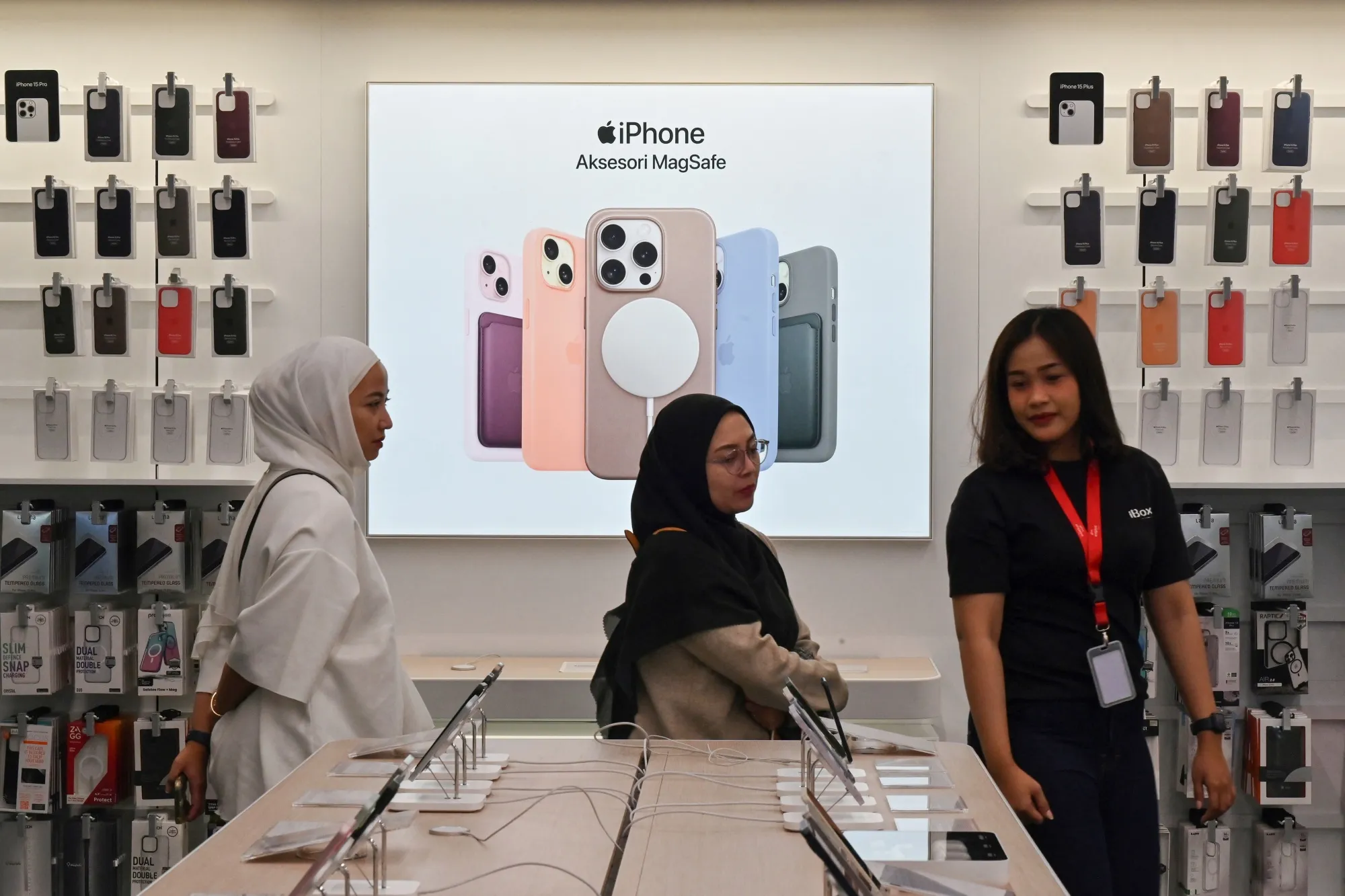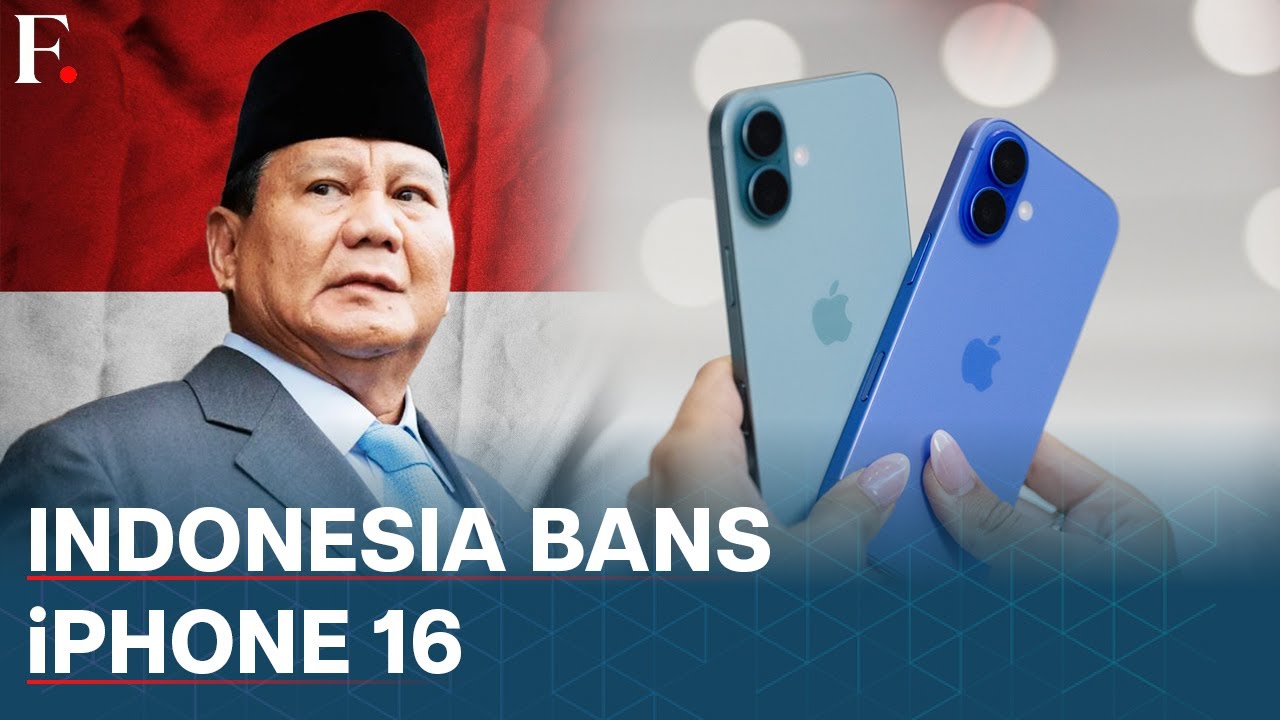Apple vs. Indonesia: A $1 Billion Offer to End the iPhone 16 Sales Ban
- Indonesia demands more: Is Apple ready to meet the nation’s hefty local content rules?
- What led Apple to boost its investment from $100 million to a staggering $1 billion?
- Apple’s latest $1 billion pitch to Indonesia could reshape Southeast Asia’s tech landscape.
- Can Apple’s hefty investment turn the tide and lift the iPhone 16 ban? Find out here.
In a significant move, Indonesia has signaled its readiness to welcome a substantial investment from Apple Inc., aiming to lift the ban on the sale of the iPhone 16 within the Southeast Asian nation. The Indonesian government is anticipating a $1 billion commitment from the tech giant, a figure that marks a tenfold increase from Apple’s previous offer. Photo via Bloomberg // An Apple Store in Indonesia.
Photo via Bloomberg // An Apple Store in Indonesia.
A Strategic Investment for Economic Growth
Investment Minister Rosan Roeslani addressed lawmakers on Tuesday, outlining the details of the proposed investment. “We want to see fairness,” Roeslani stated. “You get benefits here. You invest here and create jobs.” He emphasized that this $1 billion is envisioned as the "first phase" of a broader collaboration, with a formal commitment letter expected from Apple within the week.
Previous Investment Attempts
Apple’s initial proposal included a modest $10 million investment for a factory focused on accessories and components in Bandung, near Jakarta. This offer was later increased to $100 million, yet it fell short of Indonesia’s expectations. According to Bloomberg News, the government deemed the initial bids insufficient, citing a lack of fairness and inadequate local benefits.
Meeting Domestic Content Requirements
The crux of Indonesia’s ban on the iPhone 16 stems from Apple's failure to comply with the country's domestic content regulations. Indonesia mandates that smartphones and tablets sold domestically must contain at least 40% locally-made parts. Apple’s shortfall in this requirement led to the prohibition of its flagship device.
Roeslani underscored the necessity for Apple to present a more compelling investment compared to its substantial $15 billion commitments in Vietnam. “Their investment must be bigger,” he asserted, highlighting Indonesia’s determination to secure a more favorable deal.
Potential Ripple Effects
Industry Minister Agus Gumiwang Kartasasmita reiterated last month the government’s priority to establish a local manufacturing plant for Apple, akin to facilities operated by Samsung Electronics and Xiaomi Corp. Such a development is expected to catalyze further investments across related sectors and generate numerous job opportunities. “The most important thing is that the global value chain will move to us,” Roeslani added. Photo via Firstpost // Apple's iPhone 16 has been officially banned in Indonesia, a country with 270 million people. And now, Apple is offering big bucks for access to this market.
Photo via Firstpost // Apple's iPhone 16 has been officially banned in Indonesia, a country with 270 million people. And now, Apple is offering big bucks for access to this market.
Indonesia’s Track Record with Foreign Investments
Indonesia has a history of negotiating vigorously with multinational companies to bolster its domestic industries. Notably, the government has mandated ByteDance Ltd.’s TikTok to separate its shopping feature from its social media platform to protect its retail sector from inexpensive Chinese imports. Additionally, Indonesia has banned the export of raw materials like nickel to encourage onshore processing and the development of local battery manufacturing.
Economic Context
This push for increased investment coincides with newly inaugurated President Prabowo Subianto’s ambitious goal of achieving 8% economic growth over his five-year term. However, recent data shows that Indonesia’s GDP expanded by only 4.95% last quarter, the slowest growth rate in a year, amid declining factory activity and consumer spending.
A Promising Market for Apple
Indonesia represents a lucrative market for Apple, boasting a young and increasingly tech-savvy population. With over 350 million active mobile phones compared to the nation’s 270 million population, according to government statistics, the potential for growth is substantial.
Key Highlights:
- Investment Amount: $1 billion (first phase)
- Previous Offers: $10 million for a Bandung factory; $100 million later
- Domestic Requirements: At least 40% local content in devices
- Economic Goals: President Prabowo aims for 8% GDP growth
- Market Size: Over 350 million active mobile phones
Looking Ahead
As Indonesia awaits Apple’s formal commitment, industry observers remain keenly interested in the potential outcomes of this negotiation. A successful $1 billion investment could not only lift the iPhone 16 ban but also position Indonesia as a pivotal player in Apple’s global supply chain strategy.
Recommended by the editors:
Thank you for visiting Apple Scoop! As a dedicated independent news organization, we strive to deliver the latest updates and in-depth journalism on everything Apple. Have insights or thoughts to share? Drop a comment below—our team actively engages with and responds to our community. Return to the home page.Published to Apple Scoop on 3rd December, 2024.
No password required
A confirmation request will be delivered to the email address you provide. Once confirmed, your comment will be published. It's as simple as two clicks.
Your email address will not be published publicly. Additionally, we will not send you marketing emails unless you opt-in.